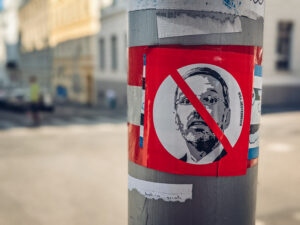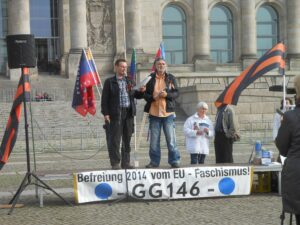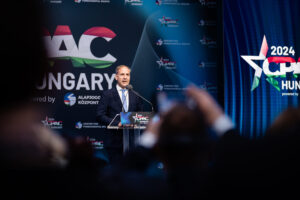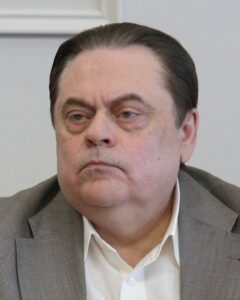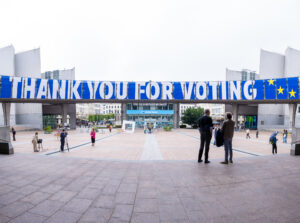The sacking of Alternative für Deutschland (AfD) from the Identity & Democracy (ID) group in the European Parliament traces back to clashes between AfD and Rassemblement National (RN), resulting from non-matching strategies and conduct rather than ideological mismatches.
We’ll cover some of the key clashes in reverse order:
23rd of May: The European Parliament group Identity and Democracy dismisses the membership of its German delegation, which consists of Alternative für Deutschland (AfD).
22nd of May: The Italian and Czech ID delegations, Lega and Svoboda a Prima Democracie, distance themselves from the AfD and announce that they are no longer willing to cooperate with it.
21st May: The French Rassemblement National (RN) announced clearly that it would no longer form a common group with the AfD in the next EP legislature.
These are the immediate results of the latest misbehavior of Maximilian Krah, the AfD lead candidate in the upcoming EP elections. He gave an interview to the Italian newspaper La Repubblica in which he relativized the criminal character of the national socialist Schutzstaffel SS. In the course of these developments, Krah left the AfD party board. His public presence in the election campaign was already reduced anyway because of his alleged ties to Russian and Chinese interests. This was further substantiated by the persecution of his parliamentary assistant on the grounds of espionage for China. That was at the end of April.
12th of April: The AfD group in the German Bundestag posed a small inquiry to the government concerning the German position towards the French overseas department Mayotte, a colonial relict. But one where the people decided to remain part of France in multiple referenda already. And one in which, curiously, the RN has overly good election results. So, the RN was not amused and already back then announced to rethink the parliamentary group with the AfD, but only after the elections.
January/February: The RN distanced itself from the AfD after journalists made public a meeting in Potsdam, where massive remigration plans were discussed and the AfD was prominently represented. The following back-and-forth between both parties ended in nothing, literally.
April 2022: After Krah sided with Marine Le Pen’s competitor in the French presidential elections, he was suspended from the ID group for obvious reasons.
July 2019: When Krah started working as a European Member of Parliament, he contracted Guillaume Pradoura as an assistant. He worked for MEP Nicolas Bay before but was fired when Pradouras’ antisemitic attitude and his proximity to the Ku Klux Klan had been revealed. Krah even defended Pradoura publicly. The RN, of which Bay was still part at that time (he later defected to èric Zemmour’s Reconquête), was not happy. Maybe it’s here where a certain distrust between French power politics and German ideologic-principalist conviction arose.
29th of May, 2024: Latest news on the personalia Pradoura. His offices in Strasburg and Brussels and his apartment were raided by authorities in the context of examinations against Maximilian Krah and his alleged involvement in russian influence via the Voice of Europe network. An interesting, though not immediately relevant side fact: Pradoura is currently working for the Dutch MEP Marcel de Graaf, who left the ID group in 2022, accusing the group and its member parties of being anti-Russian.
An overview of the various European Parliamentary Groups and Parties in the European Parliament over time.
Interpreting the AfD/RN Divide and the Future of the ID Group
The latest SS comments of Krah are widely seen as the last straw as to why the RN is now breaking up from the AfD.
Just a week ago, Björn Höcke, leader of the strong and fascist wing of the Thuringian AfD, was convicted of deliberately saying “Everything for Germany/Alles für Deutschland,” a slogan of the national socialist organization Sturmabteilung SA. Those historic German chauvinist references are outside the discursively acceptable, above all, with regard to the RN’s long-lasting strategy of respectabilisation.
The distancing of the Potsdam meeting has to be seen in this light, too. The outrage about the deportation-like imaginaries of remigration was international and produced such moral and political pressure that even the RN felt obligated to take a position against it. The attempts on behalf of the AfD to appease the RN officials or to get the topic cleared did not work out. For a good reason: The hard stance against any kind of immigration is something the RN and AfD have in common. The problem was the wording and the subsequent appearance of being either normal and respectable, or radical.
The cause of Mayotte is a good example of how the AfD’s radical positioning in the German national context does not match with the RN’s strategy. In the above-mentioned parliamentary inquiry, the status of the island of Mayotte was functionalized to denounce putative double standards concerning the so-called right to self-determination of the people. That way, the AfD wanted to make the case for the Crimean referendum following its Russian annexation in 2014, both widely rejected by other states. The RN, on the other side, wants to appear as part of the accepted, normalized global coalition against Russia, rarely actively denouncing its longtime ideological and practical ties to Russia, more by silencing the topic— something the AfD group has either overlooked or just ignored.
The divide between AfD and RN seems more like a strategic incompatibility than an ideological distance. More concretely, the AfD’s politics seem to interrupt the RN’s strategy of seizing power repeatedly. So, the RN put an end to this imponderability—for now. The current legislature ends in two months. From July on, the groups will be re-composed with the newly elected European parliamentarians.
Following some news media’s insider information, the decision to exclude the AfD was not unanimous. The Austrian FPÖ and the Estonian EKRE sided with the AfD. So, depending on how many new partners are available, preserving the ID group for the new legislature is not a safe bank for the RN yet. Neither, or even less, are the big dreams of forming a group with the Italian FdI, the Hungarian Fidesz, and the Polish PiS.


